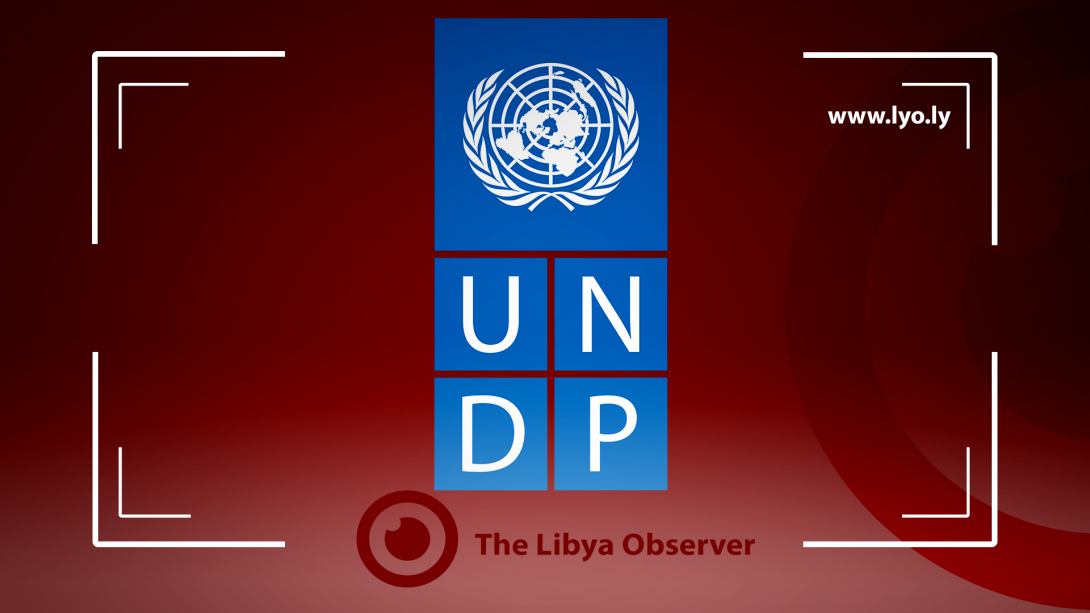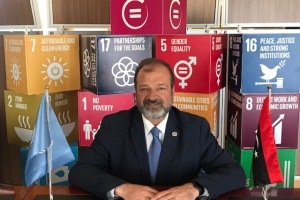By Gerardo Noto, Resident Representative, UNDP Libya
Breathing new life into sustainable development

Doing the same thing over and over and expecting different results is what Albert Einstein called insanity. He refused to believe in the inherent unpredictability of the world. Is the subatomic world insane, or just subtle? He asked himself. What he defined as insanity may rightly apply to some repetitive approaches to promote development. We support Governments to come out with new regulations but most of the time the gap between rules and reality does not close and people do not benefit of changes. We rehabilitate schools but literacy rates do not necessarily rise. We build hospitals but there are people still dying from preventable and curable diseases.
We have learned that there are too many development initiatives, although well-intended, that have modest impact on people lives. Is not clear by now that to make a difference in the field of development we should go beyond repeating the same actions and expecting different results?
See life as it should be
I would say that we have been maybe too sane, taking the words of Miguel de Cervantes Saavedra, author of 'Don Quijote', when he said that "Too much sanity can be the worst of crazy things; See life as it is and not as it should be.”
The concept of ‘insanity’, ‘madness’ or ‘craziness’ is ambivalent as can be proven by its evolution throughout history. Madness has a negative connotation. It was linked to supernatural and demonic influences in ancient times. At the end of the 19th century, madness started to be conceived as a behaviour positioned against social norms. Nowadays, madness has been acknowledged as an indispensable quality of genius and the wise. People as relevant as the Persian scholar Muhammad ibn Musa Al-Khwarizmi, Edgar Allan Poe, Charles Darwin, Marie Curie or Leonardo da Vinci, were called crazy in their day.
UNDP was founded in 1965 to help countries eliminate poverty and achieve sustainable human development. A crazy idea, wasn't it?
Opportunities for all
UNDP has always envisioned life as it should be full of opportunities for all, women, men, children and generations to come. We have helped countries to develop policies, leadership skills, partnering abilities, institutional capabilities and achieve inclusive economic growth and equality.
We live in a time when our lives are deeply shaped by information and communications technologies. Human society has changed dramatically in ways hardly imaginable some years ago. There are infinite “crazy” new initiatives worldwide. As UNDP Administrator, Achim Steiner, points out: “We realized that UNDP needs to draw on lessons learnt in the fields of innovation and entrepreneurship to deliver a more dynamic approach to accelerating the implementation of the Sustainable Development Goals.”
New life for sustainable development
The 60 UNDP Accelerator Labs are our way of going ‘crazy’ to breathe new life into sustainable development.
In Libya, another kind of madness has been punishing people for a long time. After promising changes in 2011, divisions and violence have trapped the country in a protracted conflict preventing them from moving forward on a development path which realizes the amazing potential of its people and resources.
Sustainable development may seem an unreachable dream. Too many lives have been sacrificed to war. Too many have been displaced. Too many migrants have suffered exploitation and abuse or have died at sea. Women have been heavily burdened by the consequences of war, they have suffered violence and other human rights violations. Children have been denied a quality education. People have not received badly needed health services.
Taking another path
In UNDP Libya, we believe that another path is possible. There are committed and dynamic people ready and eager to build a different future. We have chosen the ‘genius craziness’ to empower innovative people to look for ways to solve development problems. The Accelerator Lab in Libya has been designed as a development catalyzer.
The short cycle of experimentation and expansion of successful ideas will allow the innovators to quickly learn from successes and failures.
We have already set up a team within the country office. Following an intensive bootcamp, where the team was exposed to the most effective techniques and tools, they returned to Libya to implement their ideas. Our priority for the next 100 days is solid waste management—a significant problem in everyday life.
The UNDP Libya Accelerator Lab will bring together local organizations and private companies eager to work with their communities and governmental institutions that need support implementing policies to address challenges such as solid waste management. They will test out their ideas with the help of UNDP and their partners.
Trying something else
Due to the conflicts that Libya has experienced since 2011, most of the development initiatives that have been implemented in the country aimed at withstanding the impairments of war. Now we are trying something else.
They may call us crazy, but only craziness can make a difference. As William Blake said, “If the madman persisted in his madness, he would become wise.” We are joining the world that is going crazy, as many say, to contribute to peace, stability and a better future in Libya. We hope soon people will look at our “crazy” efforts as a little shot at genius.
Disclaimer: The views and opinions expressed in this article are those of the writer, and do not necessarily reflect those of the Libya Observer


